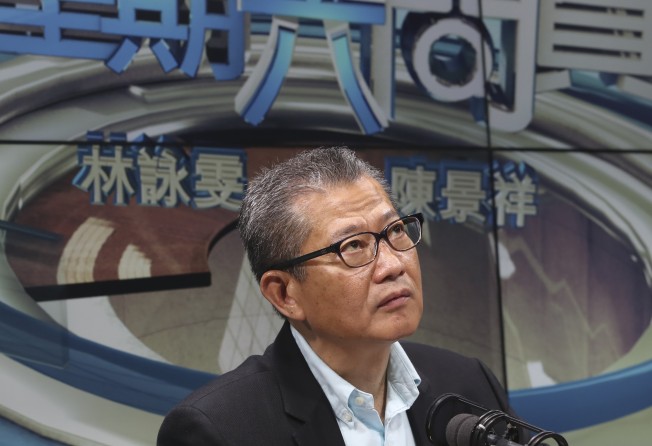
Why having too much money can be a problem – just ask Hong Kong’s financial chief
Mike Rowse says budget surpluses make it difficult to curb harmful habits, like the overuse of water and electricity, through taxes when the government already has too much money

It is easy to make fun of our financial secretaries, and often tempting to do so. In a world where governments of even the most powerful economies run substantial fiscal deficits, it is difficult to take seriously a finance minister who literally has more money than he knows what to do with. Yet that is the position Hong Kong has been in for many years.
Although this sounds like a good situation – and indeed some aspects are positive – in fact, it is very much a mixed blessing. The latest office holder to find this out is the incumbent financial secretary, Paul Chan Mo-po.
There are two main reasons to worry about the large surplus achieved this year and forecast for the next five budgets. First, it is derived directly from the skewed structure of our economy and, in particular, the absurd prices reached in the property market.
In addition to the land premiums the government collects when it sells new land, or agrees modifications to old land leases, there are massive spin-offs in terms of extra stamp duty when new flats are put on the market or existing properties change hands because of the higher prices being paid. Paradoxically, this situation has been made worse by the emergency measures taken in an effort to cool the property market. Thus, the extra stamp duties imposed on overseas buyers, on people who already own property, on people buying through companies, and the like, have only had a marginal effect on rising prices, while exacerbating the excess revenue problem.
High property prices feed through into every corner of the economy and squeeze all other forms of economic activity.

The second major reason having too much money can be a problem is that it weakens taxation policy as a tool for shaping behaviour in socially desirable ways. Hong Kong people use far too much water, for example, and the best way to curb waste would be to increase the price. Yet, existing water charges do not even cover the cost of supply. Given our present surpluses, it is hard to see the Legislative Council approving an increase in water charges even to cover costs, let alone one high enough to deter waste.
Similarly with electricity consumption. Visitors are impressed by the “jewellery box” skyline our city offers at night with brightly lit tower blocks even when the offices concerned are completely empty, but what about light pollution? Companies and individuals in Hong Kong leave the lights on casually because our electricity prices are too low. Soon, summer will be here and the air conditioning in shopping malls will be freezing us all again. We use too much power because it is too cheap. To curb consumption without giving the power companies excess profits, we should add a tax on bills. But, once again, a government with too much money can hardly make the case to raise even more.
Curbing water and power consumption would be good for the environment, but we can’t do it.
Similarly, but in reverse, it is harder for the government to plead poverty as a reason to reject unwise spending proposals. Other governments can point to empty coffers and competing priorities when turning down silly ideas. What does a guy with HK$138 billion in his pocket say?
The latest boondoggle to rear its ugly head is the idea of a big cash handout to everyone with a Hong Kong ID card, as was done in 2011 by previous financial secretary John Tsang Chun-wah. Some politicians and commentators even claim this was a popular exercise which ran smoothly. Are memories really so short? Tsang’s first plan was to pay HK$6,000 into each person’s account with the Mandatory Provident Fund. The MPF was so unpopular at the time for the high charges being creamed off by service providers (among other reasons) that the idea provoked a wave of popular fury. To save the budget, Tsang had to retreat to the idea of an immediate cash handout. In so far as it reached local residents, this worked OK as it enabled the beneficiary to pay off some bills or to give the retail sector a boost (I bought new shoes). But it also enabled thousands of former residents who had emigrated to Canada and elsewhere to have a free holiday at our expense.
Chan has wisely rejected the idea of an indiscriminate payout this time, though he is thinking of ways to help those who do not benefit directly from all the tax breaks and other relief measures.
Criticism of the budget has been along fairly predictable lines (no imagination, no addressing structural problems, etc) all to some extent valid but overlooking the fundamental issue: we can only start to move towards a more sensible budgetary system if we can somehow gently engineer a 50 per cent fall in property prices without alienating the middle class (say over five years). In your prayers this evening, spare a thought for our beleaguered financial secretary. He basically needs a miracle.
Mike Rowse is the CEO of Treloar Enterprises. [email protected]